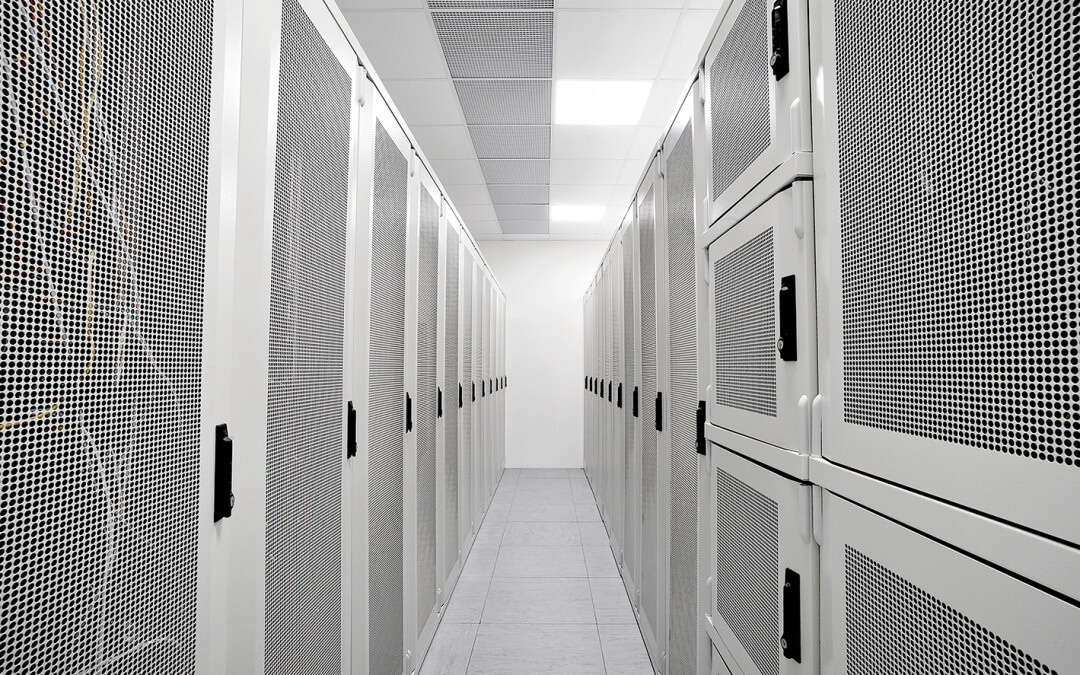LDeX Group’s time to ‘shine again’ – Manchester Evening News
http://www.manchestereveningnews.co.uk/business/business-news/rob-garbutt-ldex-trafford-park-12195390?ptnr_rid=81384&icid=EM_MEN_Nletter_Business_largeteaser_Image_Story2
http://www.manchestereveningnews.co.uk/business/business-news/rob-garbutt-ldex-trafford-park-12195390?ptnr_rid=81384&icid=EM_MEN_Nletter_Business_largeteaser_Image_Story2
According to The Independent, the power used by data centres accounts for approximately 3% of the global electricity supply – and with the rate at which data is being created, this percentage is only set to rise.
Now more than ever, data centres should be doing whatever they can to minimise the impact of their energy use. However, hyper-scale amounts of energy and the increasing popularity of web-scale IT systems mean that advancements in hardware generally seem to be at odds with the goal to become more energy efficient.
However, there have been improvements, such as making the best use of outdoor air and data centre design, as well as companies choosing site locations that make use of renewable energy. But the storage industry should always be looking for alternative ways to save energy – which is where artificial intelligence (AI) can play a part.
In October, Google announced that its DeepMind AI software reduced the cooling bill for the company’s data centres by 40%. This technology uses data such as temperature readings, power usage, and pump speeds to improve energy efficiency. Whilst this software may not be as effective for smaller data centres, it’s a step in the right direction.
More recently, researchers at Lancaster University created a self-assembly software system driven by AI. The machine-learning tool uses search and sort algorithms and memory caches to help it alter its own behaviour and carry out server tasks in the most efficient way.
This software can cut data centre running costs significantly, and could signal the dawn of a more efficient era for the data centre industry. With so much more data being created, artificial intelligence could help adapt to the changing demands of data centres, now and in the future.
At LDeX, we’re committed to exploring new ways to save energy – click here to find out more.

Marmite, Vauxhall cars and now Microsoft’s Azure – the impact of the falling pound is being felt in every sector.
Microsoft is expected to increase its UK prices by as much as 22% in January due to the recent decline of the pound. Its Azure platform is incredibly popular with businesses, but this price increase means that firms may struggle to keep their data with Microsoft and, if they follow suit, Amazon Web Services and Google Cloud.
So, what does the future hold for the data storage industry? As the triggering of article 50 looms nearer, businesses may seek less expensive ways to store their data. Companies may understandably begin to look for scalable storage methods that allow them to stay in control of their data in an uncertain business landscape.
Colocation is a cheaper solution that combines fast connectivity with peace of mind. It allows businesses to take advantage of scalable, state-of-the-art infrastructure which is managed 24 x 7 by a dedicated team, leaveing the business to focus on their own objectives.
We understand that this is what organisations need in periods of change, which is why we provide flexible and reliable colocation solutions. We offer dual site options as well as a choice of colocation at our London or Manchester sites, along with a wealth of security solutions to keep your data safe.
If you want to find out more about what we can offer your business, click here.
https://www.financedigest.com/the-challenge-of-keeping-data-secure-why-in-house-security-isnt-enough.html
Denmark, the land of fresh air, beautiful scenery and captivating history, is set to be the new home of Facebook’s second Nordic-based data centre.
The California-based social media giant announced last week that it was planning to build the 184,000 square meter facility in Odense, the birthplace of writer Hans Christian Andersen, to store and manage its growing pool of data.
So, why Denmark?
Denmark is known for its clean energy. In fact, it’s a world leader in Cleantech and low carbon related industries. By 2020 the country should be producing half of its electricity from renewable sources. Since Mark Zuckerberg is lobbying to enhance connectivity with the smallest carbon footprint possible, this energy efficiency is likely to have been a big factor in Facebook’s decision to open a data centre there.
Facebook’s public move into these cleaner energy countries is promising, especially to environmentalists like ourselves. In early 2013 we switched our electricity supply to use only 100% renewable energy sources, meaning that all LDeX and client equipment within our data centre facilities are powered by green energy. We also provide carbon neutral colocation solutions to clients that help them to reach environmental impact targets.
Further to their miles of wind-farms, Denmark also has one of Europe’s best performing economies, making it even more appealing to global businesses like Facebook.
Whatever the reasons behind the move, European countries should be encouraged by Silicon Valley titans looking overseas to fulfil their technology requirements. After all, a move such as this one creates a wealth of jobs and attracts investment from far and wide.
Click here if you want to learn more about our environmental responsibility.

Imagine the scenario, too many people, not enough places for them to live. Chaos. Well, this is what’s happening in the digital world.
Every device that has access to the Internet is registered to a unique IP address – this is used for identification and enables the devices to communicate over a network – but due to the exponential growth of the Internet these addresses are rapidly running out. So much so, the US has already come to an end of their allocation, and we may only have two years until they are all claimed on a global scale.
Enter IPv6, the most recent Internet Protocol, developed by the Internet Engineering Task Force to deal with the problem of IPv4 address exhaustion. Although there is still a small number of IPv4 addresses available, we need to prepare for when they are no longer available. Technology goliaths, like Apple and Microsoft, have ensured that their devices will automatically be assigned a IPv6 address, enabling businesses to connect to the IPv6 network. Businesses therefore need to ensure that their infrastructure also facilitates this.
Here at LDeX Group we pride ourselves on being forward-thinking, which is why we have been IPv6 enabled for six years. Our Dual Stack offering is free of charge to all our customers and ensures that they don’t get left behind and have a seamless transition from IPv4 to IPv6.
It’s time to prepare for the change and ensure your business is ready for the switch. Click here to find out more.
ING Bank apologised to its customers in Romania this week after a planned test of its gas-based fire suppression system knocked its Bucharest-based data centre offline. This left users unable to carry out card transactions and access internet banking services over the weekend. The company’s ability to alert customers about the situation was also hindered by its email and text systems being unavailable due to the issue.
Although the Head of ING Bank’s retail division blamed the test for the problems, it was reported that the sound created by the release of the inert gas from the cylinders, as opposed to the substance itself, caused the data centre hardware to fail. The noise levels are said to have exceeded 130dB during the test, causing the hard disk drives inside the storage systems to vibrate and malfunction.
This is the first time I’ve heard of sound waves from a gas fire suppression system creating damage to hard disk drives, resulting in server failure, and this is highly unlikely to happen again. Nevertheless, freak scenarios such as this one prove how important multiple lines of defence are in data centre environments.
At LDeX Group we use a ‘double knock’ solution, meaning that smoke must be detected in two zones to trigger our gas fire suppression system, reducing the risk of a false positive. Our VESDA smoke detection is installed throughout our data centres to act as an early warning sign for any potential fires and the FM200 suppressant is designed to remove the oxygen, heat and fuel from a fire, extinguishing it within ten seconds.
If you want to know more about our offering and how ‘double knock’ can help you avoid situations like ING Bank’s, visit our website.
http://www.computerweekly.com/news/450304153/ING-Bank-fire-suppression-system-test-knocks-datacentre-offline
http://www.datacentres.com/dc-news/ldex-group-bolsters-its-carrier-offering

You may have heard the news about the ‘smart energy’ revolution that the national grid has recently discussed, whereby consumers can adjust their energy consumption to use energy when its cheapest.
This scalable, pay-for-what-you-use model is becoming more and more popular for many consumers across industries, including the data centre sector. Flexible options that consider the consumers’ usage habits and place them at the heart of their interaction with the product are being adopted increasingly frequently.
The resulting reduction in cost is one reason for this – customers, whether they’re using electricity to store their data or energy to power their homes, obviously don’t want be paying for what they don’t use. However, another large part of this revolution stems from the providers themselves, who want to provide not just great customer experience, but a service that is friendly to the environment.
Here at LDeX, we’re very proud to be carbon neutral, and we always aim to help clients to reach their environmental impact targets with our services. Our data centres are powered by 100% renewable energy sources and use maximum efficiency cooling systems in order to avoid downtime whilst minimising energy waste.
With the rise of smart energy, we’re seeing businesses and consumers alike putting greener thinking at the heart of their product choices – a trend that we hope will continue to grow.